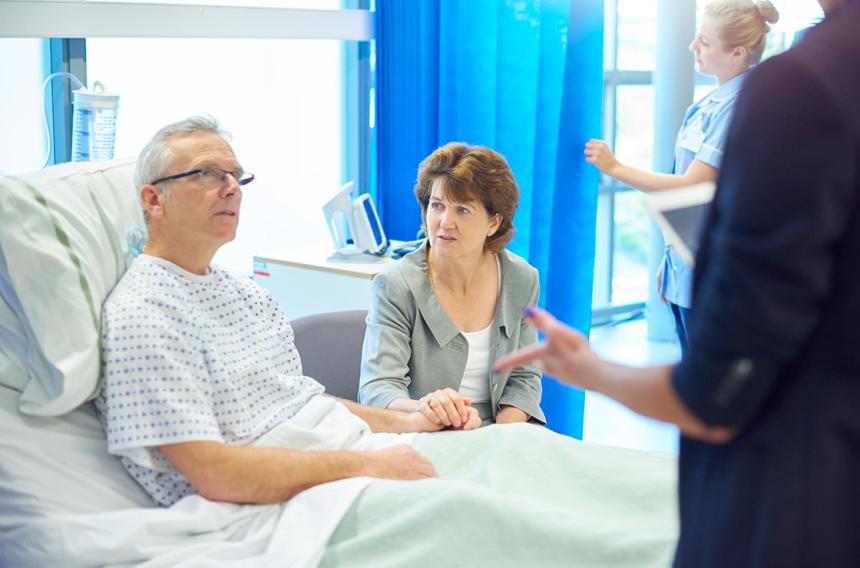5 Tips to Help Prevent Kidney Stones

If you’ve ever experienced a kidney stone, you know first-hand just how excruciating painful they can be. Despite being a largely preventable condition, kidney stones are quite common. Each year more than 3 million people visit their doctor or the emergency room seeking treatment for stones, according to Cleveland Clinic.
Incidents of kidney stones are also rising. For example, when researchers looked at Minnesota residents in a small town between 1984 and 2012, the number of women and men with kidney stones quadrupled and doubled, respectively, according to a recent study published in the Mayo Clinic Proceedings.
“More and more people are developing stones,” says Bernard Kaminetsky, MD, medical director, MDVIP. “Researchers don’t fully understand why but speculate it may be connected to our rising obesity rates.”
Kidney stones are small crystals made of salt and minerals that form inside the kidneys and can travel down the urinary tract. Generally, they range in size from a grain of sand to a ping pong ball. Smaller stones are often passed without symptoms; however, larger stones can get trapped in the ureter – the tube that carries urine from the kidney to the bladder – causing symptoms such as extreme pain, urinary tract bleeding and urine blockages.
Six types of stones exist – cystine, medication induced, uric acid, struvite, calcium phosphate and calcium oxalate.
Cystine stones: Comprise less than one percent of all stones and are caused by a cystinuria, a rare, genetic disorder that causes cystine (a protein building block) to leak into urine, accumulate and develop into a stone. If you have cystinuria work with your doctor to help keep the condition under control and prevent stones.
Medication-induced stones: Comprise one percent of all stones and can be caused by taking loop diuretics (for blood pressure control), some types of antacids, theophylline (an asthma drug) and glucocorticoids (a type of steroid). If you’re taking one of these medications and struggling with stones, talk to your doctor. They might be able to switch your medications.
Uric acid stones: Comprise between 5 and 10 percent of all stones and can form when your uric acid level is high. If you have gout, chances are you’ve had to deal with uric acid stones. Work with your doctor to help control uric acid levels. Learn more about gout »
Struvite stones: Comprise about 10 percent of all stones and are triggered by bacteria associated with urinary tract infections (UTIs) and long-term catheter use. If you’re prone to UTIs, work with your doctor to help you prevent them. Here’s what you need to know about UTIs »
Calcium phosphate: Comprise about 10 percent of all stones and are often related high urine pH. Citrus foods, dairy products and antacids can raise your urine pH level. If you have a history of kidney stones, work with your doctor. They may be able to test your urine pH level and if it’s high, recommend dietary changes.
Calcium oxalate stones: are the most common type of stones. They comprise 70 percent of all stones and can be related to thyroid, kidney or bowel disease, obesity, bariatric surgery, low urine volume, urine high in calcium or oxalate or urine low in citrate. Calcium oxalate stones may sound complex but many of them are relatively easy to prevent. Here are five tips from the National Kidney Foundation.
- Drink plenty of fluids. This is probably the most important step to take in preventing stones. Fluids increase urine volume, making it difficult for minerals, salts and chemicals to accumulate and crystals to form. A very broad recommendation is to drink eight 8-ounce glasses of water every day. But you can work with your doctor to figure out a personal water intake goal. And if you’re bored with drinking water, you can rehydrate with food »
- Keep your protein intake to about 20 percent of your calories. While many experts promote high-protein diets to help manage your weight, excessive amounts of protein place undue stress on the kidneys. If you’re not eating a lot of protein but suffering with stones, talk to your doctor. You may need to reduce your protein intake even further.
- Watch your sodium and calcium intake. Too much sodium leads to a calcium build up in urine, which in turn, leads to stones. Since calcium is an important component of bone health, discuss your intake of it with your doctor before making any changes.
- Skip vitamin C supplements. Too much vitamin C raises oxalate levels in urine. If you’re taking vitamin C to strengthen your immune system, you may benefit from simply eating more fruits and vegetables. However, if you’re taking it to help your body absorb iron, you need to speak with your doctor.
- Limit your intake of oxalate-rich foods, which include: nuts and nut butters, sesame seeds, rhubarb, beets, chocolate soy milk, miso, tahini, Swiss chard, spinach, bran flakes, potato chips and French fries.
“I’ve treated many patients for kidney stones. And many of them do very well if they follow the standard lifestyle recommendations. However, if a patient develops complications or has reoccurring stones, they usually need a referral to a urologist or nephrologist,” says Kaminetsky.
If you’re concerned about kidney stones, talk to you MDVIP-affiliated doctor. Looking for a primary care physician? Physicians in MDVIP-affiliated practices can customize a wellness plan for you that includes preventing and controlling cardiovascular disease. Find an MDVIP affiliate near you and begin your partnership in health »


